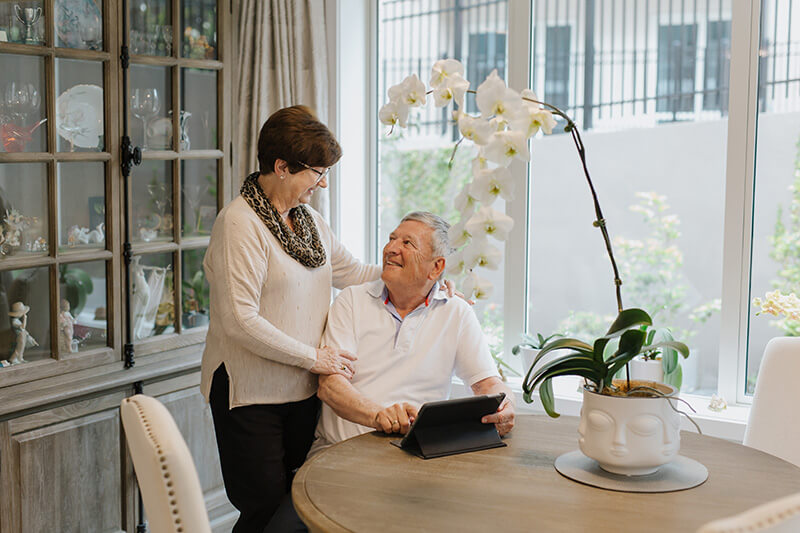Sleep and insomnia in older adults
Sleep and insomnia in older adults
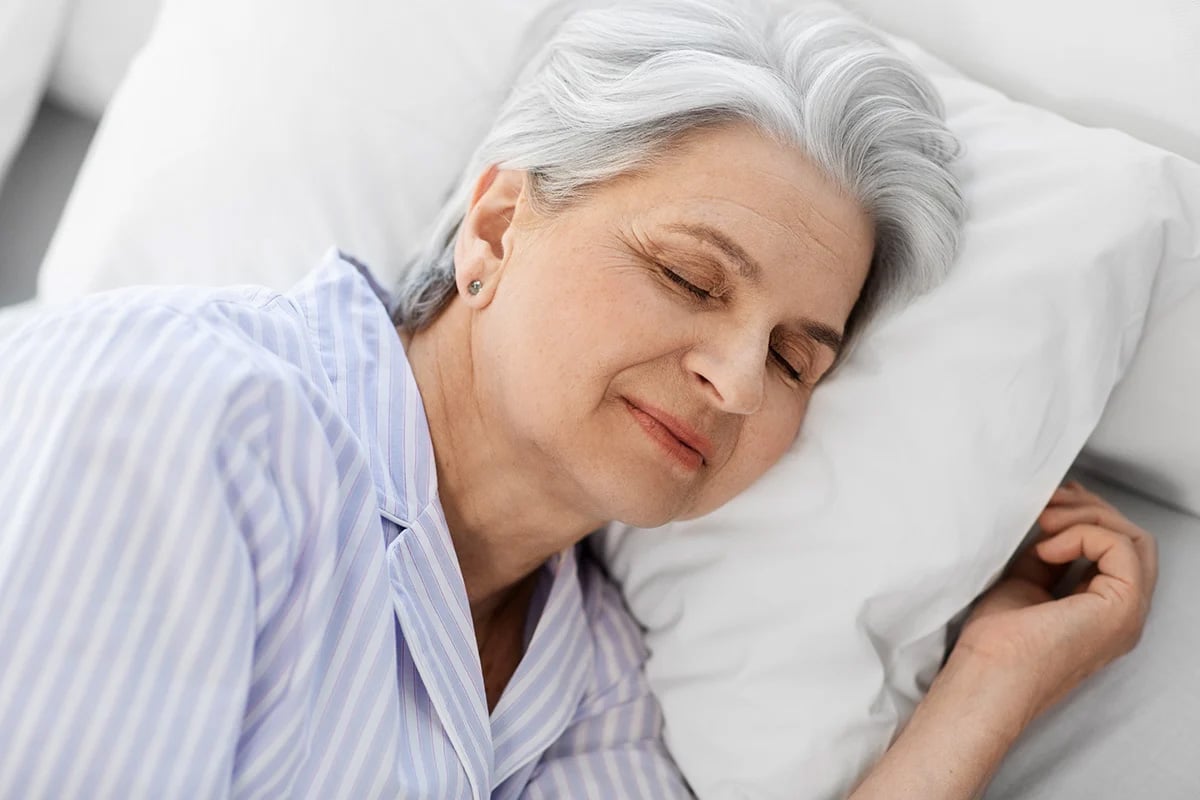
Many people experience difficulty falling or staying asleep as they age. Although a bad night’s sleep here and there is unlikely to cause any problems, if you regularly struggle with sleep issues it can significantly impact your health and overall quality of life.
Read on to learn more about insomnia in older adults, its causes, treatments, and tips for better sleep.
What causes insomnia in older adults?
Causes of insomnia in older adults can be linked to a variety of factors, including:
- Age-related changes in sleep patterns.
- Lifestyle reasons such as irregular sleep schedules, poor sleep hygiene, or a lack of physical activity during the day.
- Chronic stress, anxiety, depression, or grief.
- Pain or discomfort from medical conditions.
- Side effects from medication that interfere with sleep.
- Sleep disorders such as sleep apnoea or restless legs syndrome.
- Use of substances such as alcohol, caffeine, or nicotine.
Sleep changes commonly associated with ageing
- Lighter sleep: Older adults tend to spend more time in lighter non-REM sleep stages and less time in the most restorative phase of deep sleep. This change is a normal part of ageing, although some health conditions or sleep disorders can make it more pronounced.
- Difficulty falling asleep: It may take older adults longer to fall asleep because the internal body clock, known as the circadian rhythm, can change with age. As a result, they may feel sleepy earlier in the evening or later than usual, leading to difficulty falling asleep at the desired time.
- Frequent awakenings: As people age, they are more likely to wake up frequently during the night. This is partly due to spending more time in lighter sleep stages, and partly due to age-related health issues such as chronic pain, bladder problems, or sleep disorders.
- Waking up early: Shifts in circadian rhythms often leads to older adults feeling sleepy earlier in the evening and waking up early in the morning, even if they haven't had a full night's sleep.
- Feeling sleepy during the day: Poor nighttime sleep may lead to napping or excessive drowsiness during the day which can further disrupt sleep patterns and affect daily functioning and overall wellbeing.
- Reduced overall sleep: Many older people get less than the recommended 7–8 hours of sleep per night due to more frequent awakenings, lighter sleep stages, changes in circadian rhythms, and age-related health conditions.
How much sleep should I be getting as I get older?
The recommended amount of sleep for older adults is around 7–8 hours per night. The quality of sleep is also important. If you spend sufficient time in bed but still experience fragmented or lighter sleep, it won’t provide the same restorative benefits as deeper, more uninterrupted sleep.
Sleep quantity
Sleep quantity is the total number of hours that you are asleep during the night. It can be measured through sleep logs or by using a sleep tracker or smartwatch to monitor the total hours you spend asleep each night.
Sleep quality
Sleep quality is how restful and rejuvenating your sleep has been. Some ways to determine the quality of your sleep are how often you woke up during the night, how much time was spent in restorative deep sleep, and how rested you feel upon waking.
Why is sleep so important for older people?
Getting adequate sleep helps your body to fight off infections and illnesses, regulate blood pressure and reduces the risk of heart disease. It’s important for tissue repair and muscle regeneration, which are essential for maintaining your strength, mobility, and independence.
During sleep, your brain consolidates new information and strengthens neural connections, which helps with learning new things and retaining your memories.
Sleep also significantly impacts your mood and energy levels. If you don’t get enough sleep, you’re more likely to feel irritable, fatigued and stressed, affecting your emotional wellbeing. Getting enough restful sleep can help to boost your energy, improve your mood, and enable you to enjoy a more active and fulfilling lifestyle.
Treatments for insomnia in older adults
For insomnia in older adults, treatment options typically involve a combination of lifestyle changes, therapy, and, in some cases, medication.
Sleep hygiene
The first step is to create and sustain healthy sleep habits, sometimes called sleep hygiene. Here are some tips to optimise your sleeping routine:
- Maintain a consistent sleep schedule: Go to bed and wake up at the same time every day, even on weekends. This helps regulate your body’s internal clock and makes it easier to fall asleep and wake up.
- Create a relaxing bedtime routine: Establish a calming evening routine to signal to your body that it's time to wind down. Activities like reading a book, taking a warm bath, relaxation exercises or gentle yoga can help prepare you for sleep.
- Create an optimal sleep environment: Invest in a comfortable mattress and good quality bedding. A cool (but not too cold), quiet, and dark bedroom is ideal, so heavy blackout curtains can be helpful, particularly during the summer months. If you do have background noise, try earplugs or a white noise machine to block out disturbances.
- Limit screens before bed: The blue light emitted by phones, tablets, and computers can interfere with the production of melatonin, a hormone that helps regulate sleep. Avoid screens for at least 30 minutes to an hour before bedtime.
- Watch what you eat and drink: Avoid large meals, caffeine, and alcohol in the evening, as these can severely disrupt sleep. If you’re hungry before bed, have a light snack.
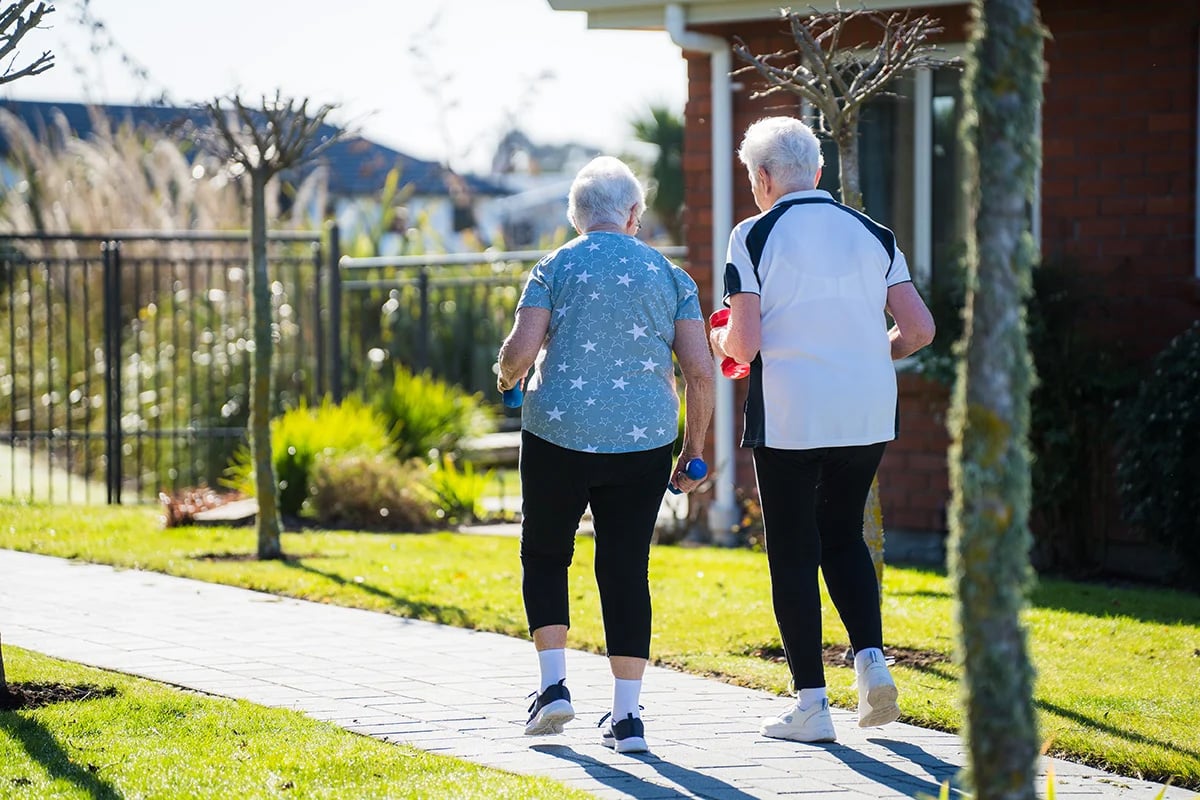
Physical activity
Regular physical activity can help you to sleep more deeply but avoid vigorous exercise close to bedtime as it may have a stimulating effect. Aim for moderate exercise during the day to help you fall asleep faster at night.
Light therapy
Spending time in natural light helps regulate your circadian rhythms, making it easier to fall asleep at night. If you’re unable to get enough natural light, ask your doctor if light therapy would be right for you. Light therapy involves exposure to bright light at specific times of the day to help reset your sleep-wake cycles to align with natural light patterns.
Cognitive behavioural therapy for insomnia
Cognitive behavioural therapy for insomnia (CBT-I) can be very effective at addressing and treating the root causes of insomnia by focusing on changing the thoughts, behaviours, and environmental factors that contribute to poor sleep. CBT-I can be done through cognitive behavioural therapists or sleep specialists. Apps that teach CBT-I techniques are also available online.
Sleep aids to give short-term relief for older people
Some over-the-counter and prescription medications can offer relief from insomnia, but they should generally be used on a short-term basis only, as they can be addictive and sometimes have side effects. Chronic use should be avoided unless under the guidance of a doctor. They’re most useful when insomnia is caused by acute temporary factors such as stress from a major life event, jet lag or recovery from illness.
Always consult with your doctor before using sleep aids to ensure they are safe and appropriate to use with your specific health conditions and existing medications.

When to seek professional help for sleep issues
Sleep issues in older adults can sometimes signal underlying health problems. If you experience any of the following, seek medical advice.
- When lifestyle changes haven’t worked: If you’ve tried improving sleep hygiene, relaxation techniques, and exercise, but are still struggling to fall or stay asleep.
- Persistent mood changes: Constant irritability, depression, or anxiety brought on by lack of sleep.
- Extended insomnia: Trouble falling or staying asleep most nights for a long period (e.g., weeks or months).
- Excessive daytime sleepiness: If you feel constantly tired or drowsy throughout the day, despite having a full night’s sleep.
- Difficulty breathing during sleep: Snoring loudly or gasping for air can be a sign of sleep apnoea, a serious sleep disorder.
- Not sleeping for days: This requires immediate medical attention as it can lead to serious physical and mental health consequences.
Supporting better sleep for a better life
Recognising and addressing sleep challenges as you age has many benefits. If you enjoy good-quality sleep, you are more likely to experience better physical health, sharper cognitive abilities, improved mood, and enhanced quality of life.
A lifestyle that supports better sleep, including good sleep hygiene, stress management, and medical care when needed, will enhance your life today and help you maintain your independence and vitality in the long term.

Resources for wellbeing at Ryman
At Ryman, we offer a range of services and resources designed to reduce stress and enhance wellness – both of which make it easier to get a good night’s sleep!
Regular exercise can help to improve sleep quality, and Ryman’s Triple A fitness programme is free for all residents. Some free Triple A exercise videos are available here for you to try in the comfort of your own home – just check with your doctor if you are unsure whether an exercise is safe for you to do. Many Ryman villages also have swimming pools and gyms.
Our complimentary activities programme offers activity and entertainment options designed to increase residents’ enjoyment of life and enhance wellbeing and connection.
We invite you to explore our state-of-the-art amenities and supportive village communities. Discover how living in a Ryman village can help you enjoy peace of mind, independence, and wellbeing.
Contact Ryman Healthcare or explore some of our new retirement villages here.
by Christine McCurdy | May 20, 2025
Subscribe to our blog newsletter
You May Also Like
These Related Stories
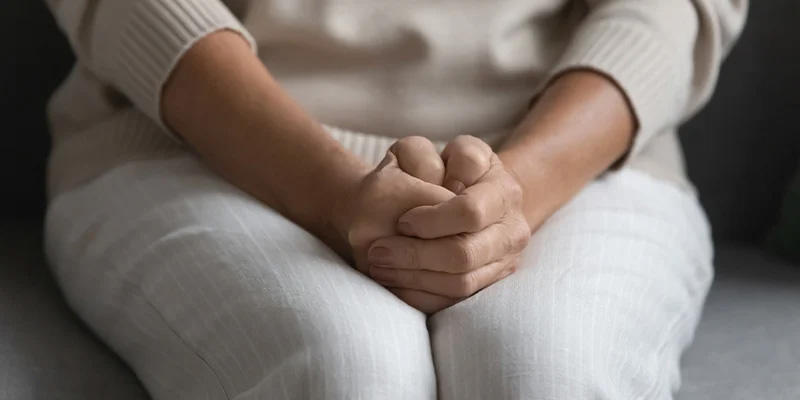
Anxiety in older adults
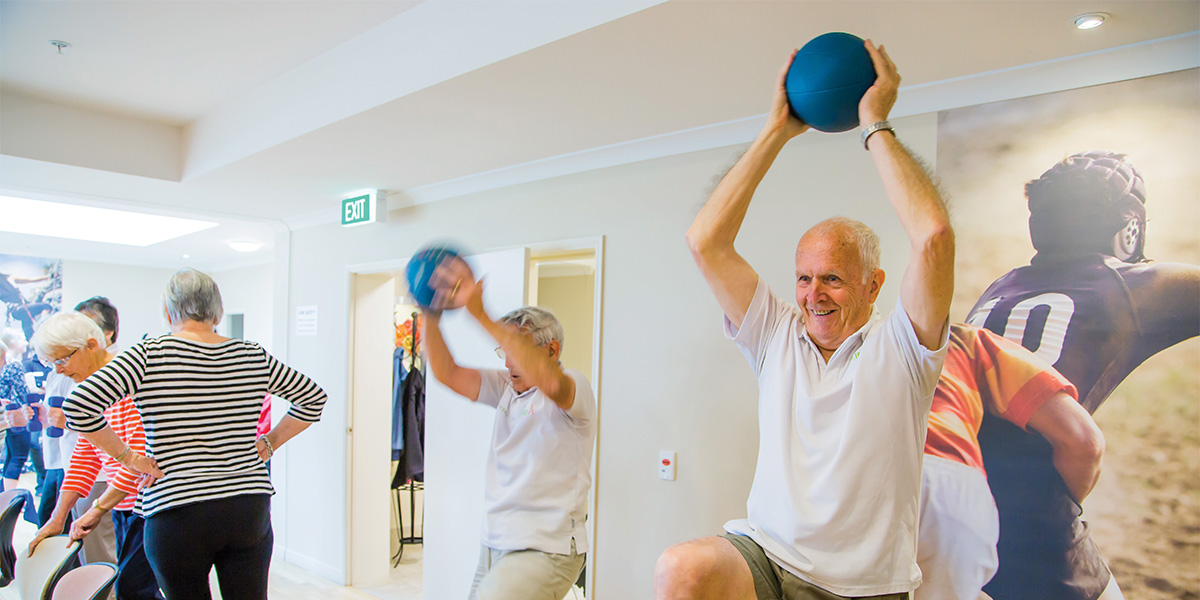
Hip exercises for seniors
